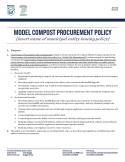
Research Reports
ELI publishes Research Reports available for free download that present the analysis and conclusions of the policy studies ELI undertakes to improve environmental law and policy. These reports contribute to education of the profession and disseminate diverse points of view and opinions to stimulate a robust and creative exchange of ideas. Those publications, which express opinions of the authors and not necessarily those of the Institute, its Board of Directors, or funding organizations, exemplify ELI’s commitment to dialogue with all sectors.
Composting is part of a holistic approach to reducing municipal food waste that also includes food waste prevention and rescue of surplus food. By turning food scraps into a natural soil amendment that can be used in city gardens and landscaping and improve soil health and water retention without the use of artificial fertilizers, composting provides myriad benefits, including reducing greenhouse gas emissions by diverting organic materials away from landfills where they emit methane.
Read More >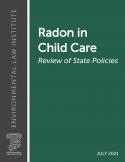
Indoor radon exposure is responsible for an estimated 21,000 lung cancer deaths in the U.S. every year. Radon gas can move from the ground to the air inside a building through cracks and other openings in the foundation. The only way to know the radon level in a particular building is to test the air in that building. Because elevated indoor radon levels have been found in all states, every state can benefit from establishing policies to promote radon testing and mitigation in child care facilities and other buildings.
Read More >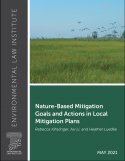
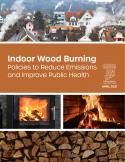
Smoke from residential wood burning is composed of many substances, including particulate matter, carbon monoxide, nitrogen oxides, and toxic chemicals such as benzene, formaldehyde, and polycyclic aromatic hydrocarbons. A wide range of serious health effects are associated with exposure to these pollutants – most prominently fine particulate matter (PM2.5), which is linked to cardiovascular disease, respiratory disease, cancer, and other systemic health effects.
Read More >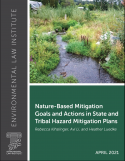
Nature-based strategies are actions that use the conservation or restoration of nature, such as ecosystems like wetlands, or green infrastructure projects, to address the risks from natural hazards. Nature-based mitigation strategies can help reduce the likelihood of future hazards occurring and minimize negative impacts when they do occur.
Read More >